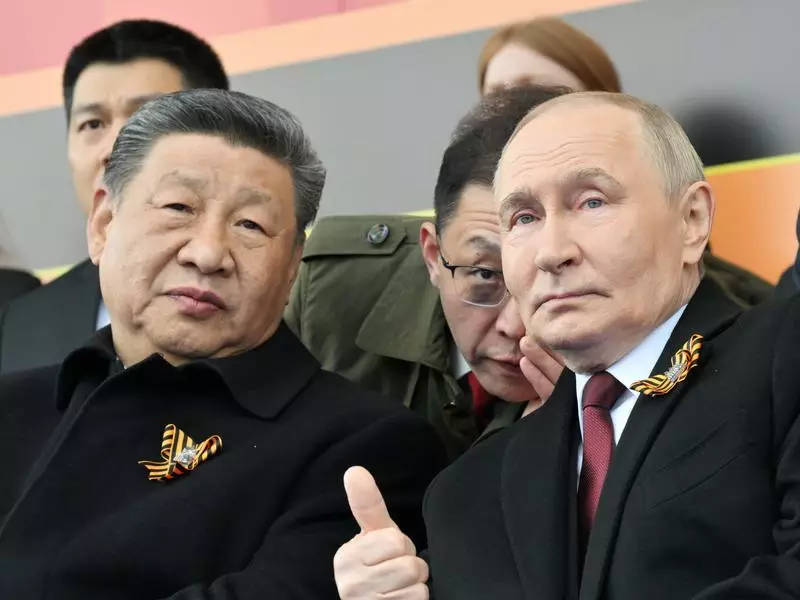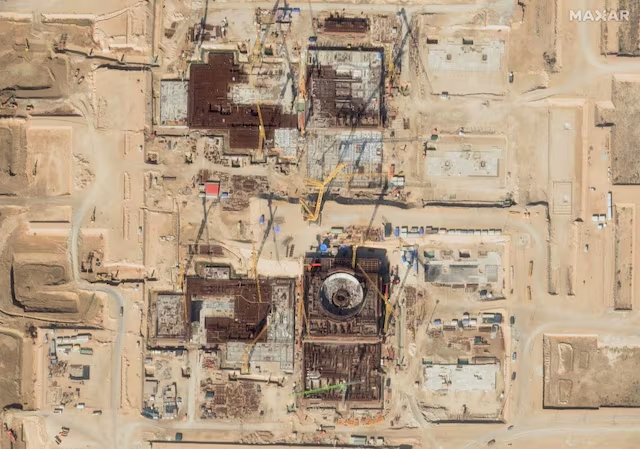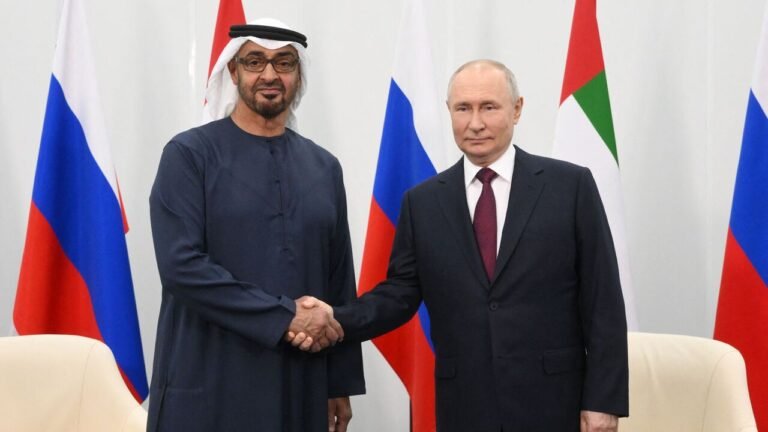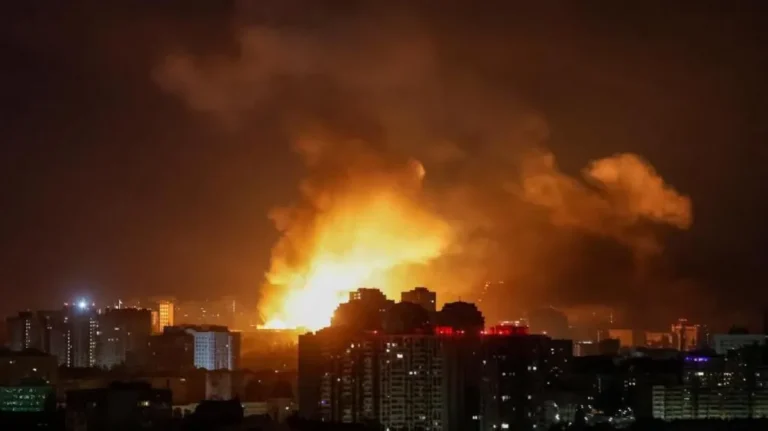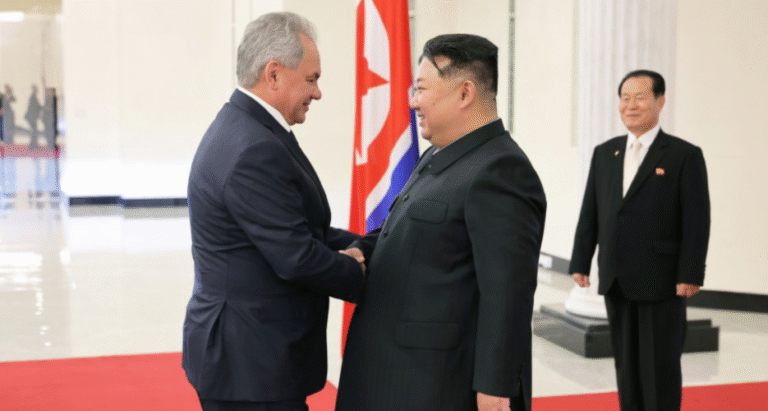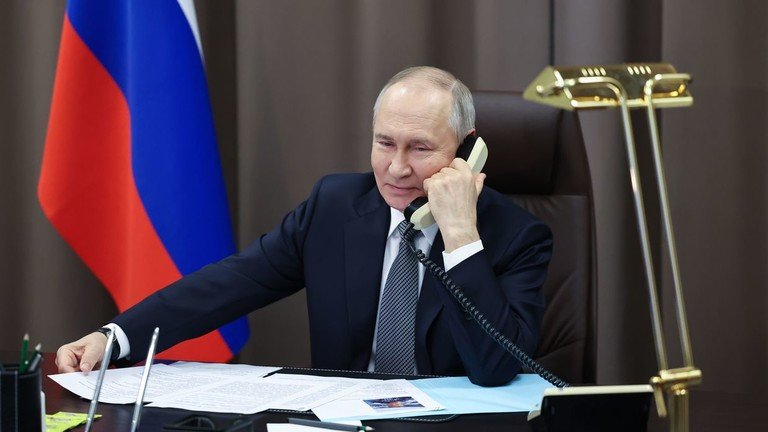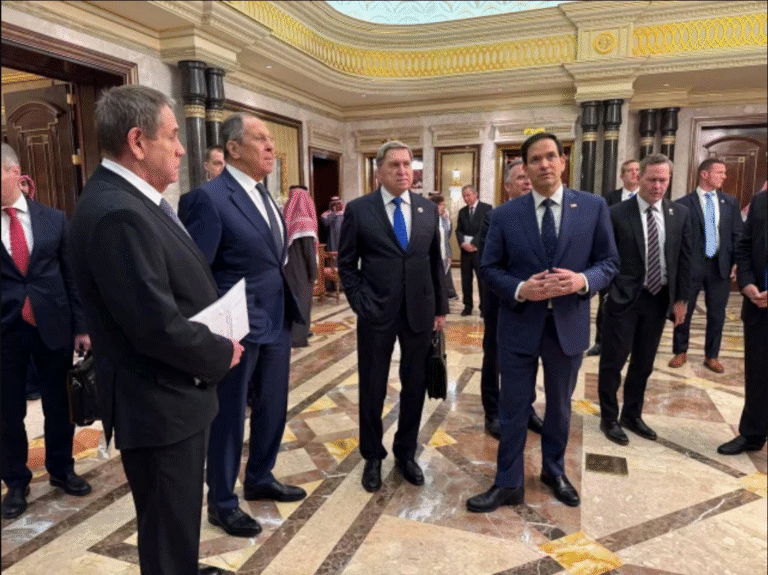Chinese President Xi Jinping said on Thursday that ceasefire is an urgent priority in settling the conflict in the Middle East, and the use of force is not the right way to resolve international disputes, according to the Xinhua News Agency.
During phone talks with his Russian counterpart, Vladimir Putin, over the situation in the Middle East, Xi urged the conflicting parties, especially Israel, to cease fire as soon as possible.
The Chinese president said that protecting civilians’ safety is the top priority amid the Iran-Israel tensions, calling on the conflicting parties to strictly follow international law, and resolutely avoid harming innocent civilians.
Dialogue and negotiation are the fundamental solutions, Xi said, adding that communication and dialogue are the right ways to achieve lasting peace.
The international community’s peacemaking efforts are indispensable, Xi said, adding that without stability in the Middle East, there can hardly be peace in the world.
The conflict between Israel and Iran has led to a sudden escalation of tensions in the Middle East and severely impacted global security, Xi noted.
Putin, for his part, outlined Russia’s views on the current situation in the Middle East, saying that Israel’s attack on Iran’s nuclear facilities is extremely dangerous. The escalation of the conflict is in no one’s interests, said Putin, noting that the Iranian nuclear issue should be resolved through dialogue and negotiation.
He also said that both sides of the conflict should ensure the safety of citizens of the third countries, adding that as the current situation is evolving rapidly, Russia stands ready to maintain close communication with China, and make joint active efforts to cool down the situation, so as to safeguard regional peace and stability.
The phone conversation between Xi and Putin comes as the Iran-Israel conflict reaches a critical juncture. Their direct communication underscores a joint effort toward de-escalation, echoing the shared concerns of the international community, Liu Zhongmin, a professor from the Middle East Studies Institute of Shanghai International Studies University, told the Global Times on Thursday.
Although the conflict ultimately hinges on the actions of the US, Israel and Iran, China and Russia – while not parties to the conflict – are working to promote de-escalation. Both China and Russia have voiced a shared commitment to lowering tensions in the Middle East, though meaningful progress will require broader international efforts, said Liu.
The expert noted that calls for dialogue are increasing. “Ultimately, negotiations may remain the most viable path forward,” said Liu.
Amid rising tensions, many countries have worked to pull their citizens from Israel and Iran, per multiple media reports.
Chinese Foreign Ministry spokesperson Guo Jiakun said on Thursday that up till now, Chinese Foreign Ministry and the Chinese embassies and consulates in Iran, Israel and other neighboring countries have organized and coordinated the evacuation of over 1,600 Chinese nationals from Iran to safety, and several hundred Chinese nationals from Israel.
Urgent situation
The tit-for-tat strikes between Israel and Iran continued on Thursday. At least one of 20 ballistic missiles Iran launched at Israel Thursday contained a “cluster bomb warhead”, reports The Times of Israel, citing the Israeli military’s Home Front Command.
Meanwhile, Israel’s military said its fighter jets attacked dozens of sites across Iran overnight, including the Arak heavy water nuclear reactor.
The fact that Israel’s American friends have entered the scene and are saying such things is a sign of Israel’s weakness and inability, Iran’s supreme leader Ali Khamenei said in a post on X.
“I would like to tell our dear nation that if the enemy senses that you fear them, they won’t let go of you. Continue the very behavior that you have had up to this day; continue this behavior with strength,” Khamenei wrote.
Israel’s defense minister said today that “eliminating” Ayatollah Ali Khamenei was a goal of its war on Iran, Al Jazeera reported.
In the past two days, the topic of US President Donald Trump weighing options for involvement in the Iran-Israel conflict has drawn wide media attention. A Bloomberg report on Thursday claimed that senior US officials are preparing for the possibility of a strike on Iran in the coming days. The situation is still evolving and could change. Some pointed to potential plans for a weekend strike.
Trump told reporters at the White House on Wednesday he has “ideas as to what to do” and that he prefers to make the “final decision one second before it’s due” because the situation in the Middle East is fluid.
Niu Xinchun, executive director of the China-Arab Research Institute of Ningxia University, told the Global Times that in recent days, the US has been moving major forces into the Middle East – aircraft carriers, bombers, and refueling planes are now in place. “While Washington calls this a defensive move in response to Iranian threats against US bases, the shift from defense to offense could happen easily,” said Niu.
But any US strike would almost certainly trigger Iranian retaliation against US bases or the Strait of Hormuz – a scenario Washington hopes to avoid. For now, the US is weighing Iran’s response and the potential consequences of any move, said Niu.
It’s uncertain whether the US will stay out of the war. While Washington claims non-involvement, its military support, missile interception, and intelligence assistance to Israel have already drawn it partly into the conflict. Full US involvement will depend on how the situation evolves and US strategic interests, Tian Wenlin, a research fellow at the China Institutes of Contemporary International Relations, told the Global Times.
Trump’s mixed messages on Iran-Israel conflict also raised concerns within the US. US Top Senate Democrats are demanding Trump outline a strategy for dealing with Iran, saying the administration has left Congress in the dark as he weighs direct US military involvement in the Israel’s campaign against Tehran, according to Politico. It also noted that the escalating conflict could spiral into a regional war and put thousands of US troops in the Middle East at risk.
The US and Israel operate in a coordinated front-and-rear formation – Israel takes direct military action on the front line, while the US offers support and strategic guidance from behind the scenes. This clear division of roles enables Washington to pursue its Middle East objectives without direct exposure. “However, this approach heightens regional tensions and further complicates prospects for resolving the conflict,” said Tian.
The expert said American support has emboldened Israel’s military actions, while increasing pressure on Iran. This imbalance of power further tilts the dynamics of the conflict and deepens regional instability.
Russian President Vladimir Putin will visit China in August for a regional summit, bilateral talks with Chinese leader Xi Jinping and events marking 80 years since the end of World War II in Asia, the Kremlin said Thursday.
Putin and Xi, who frequently refer to each other as “dear friend,” have deepened ties since Russia’s full-scale invasion of Ukraine. The two countries signed a “no-limits” strategic partnership just days before the invasion.
Kremlin aide Yuri Ushakov said Putin will attend the Shanghai Cooperation Organization summit in Tianjin from Aug. 31 to Sept. 1. He is scheduled to hold talks with Xi on Sept. 2, followed by WWII commemorations in Beijing on Sept. 3.
Xi was the guest of honor at Russia’s Victory Day parade in Moscow on May 9, which marked 80 years since Nazi Germany’s defeat in Europe.
China marks the end of the war in September, when Japan formally surrendered in 1945.

